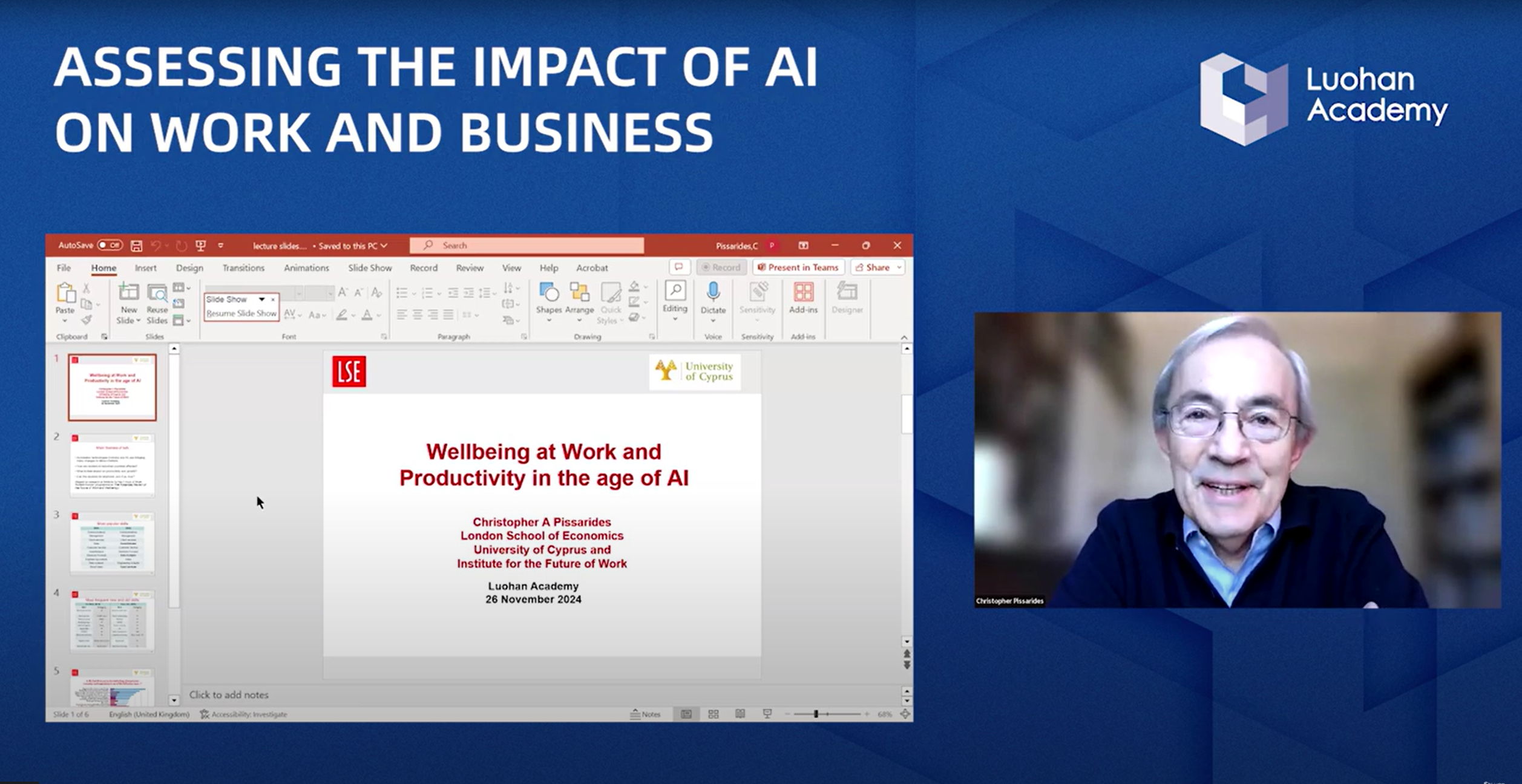Bengt Holmström is the Paul A. Samuelson Professor of Economics at Massachusetts Institute of Technology. Formerly, Edwin J. Beinecke Professor of Management at Yale University's School of Management (1983 - 1994). Research associate of the National Bureau of Economic Research. Served as board member of Nokia (1999 - 2012). Fellow of the American Academy of Arts and Sciences. Fellow and former president (2011) of the Econometric Society. Professor Holmström is a microeconomic theorist, best known for his research on the theory of contracting and incentives especially as applied to the theory of the firm, to corporate governance, and most recently to financial crises and the supply of liquidity.
Professor Holmström thought collateral in credit markets could be replaced by information, which lead to better financial inclusion. In addition to that, data privacy should not be discussed separately from the data value.
Transcript
Thank you, Steve, and thank you for inviting to this exciting conference. Congratulations, Long, for organizing this. The report is a very slippery subject and complex subject, and it's going to take a long time to make headway on it, but I think this is a good start.
I entitled my talk very pretentiously, in some ways. Value and Data is meant to be a play on John Hicks' Value and Capital, but I certainly have nothing. I think that's the challenge, to get there. But the point is that data is becoming one of the central drivers of value. It's becoming a form of capital.
Mike alluded to the fact that one place where we see it quite vividly is that collateral in credit markets is being replaced by information. That is a wonderful thing in the sense that it democratizes borrowing, and poor people are getting access based on their behavior and their risk. It is responsible, trustworthy, and so on, rather than just having wealth and getting more wealth coming to wealth, or money to money, as the traditional model has.
This is one of the great virtues and values of this new form of platform economics that has advanced so far. Very far in China, and in some of the other developing economies, the other place where it shows up. I'm sure you are aware of it. The traditional boundaries of most of the industrial sectors, or sectors of the economy, are being broken down, because businesses integrate and do M&A based on their ability to get access to data.
I know from China, New Hope is a big co-operative that where they integrate into the downstream, and into something like restaurants or something, even though they are just a farmer kind of co-operative, they integrate into credit and other things based on data. Data drives the integration decision.
You'll see it’s very odd. In the U.S., we see Square, and Quicken, and others having suddenly become very different-looking enterprises, because the realization that data is really valuable is heating. I think, in some ways, that leads to opportunities. It also leads to big challenges for economists, because the data is often panned out. It's used in a particular way, as Long emphasized. It's a user thing.
Of course, even in the traditional economics, everything depends on use, so value of use, but what's special about the data? We see data being exchanged for services. I give my data, and you provide me services. That's an exciting model for the poor, but it also is a challenge for economies. How are we going to measure the value of data when it's sort of all bundled into this complicated trade? I think quantitative will not do it.
Kenneth Arrow has actually spent a lot of time thinking of entropy and other things, somehow measuring the amount of data. But I think they all understand, now, that it really is in the value, more in a different way than in traditional economies. Quantitative won't cut it. This further exacerbates the problem of actually assessing the value of data. The new sort of value calculation. We may need a very new kind of economics, but what it is? I don't have an answer to that for sure. It's going to change regulation, of course, and other things, as well.
I think one of the important points, or central points, of Long's presentation is that that privacy isn't just focused on the privacy. This would also somehow get into this question about value. There are huge amounts of value related to this, just as I described here. That needs to be somehow discussed along with the question of privacy.
In fact, it's true. For instance, there are huge externalities coming from this nonrival. It's even not actually right to say that. There are cases where you could ask, "Should the individual even have the right to block something?"
Let's take the genetics as a very hot topic in Finland, at least right now, and probably everywhere. Do we have an interest in this? There's a shared interest in the value, and so it's not clear that the individual should have even the right to decide whether some genetic information is shared or is not shared. There are other examples like that. I really commend this approach in this report. Let me speak to the privacy paradox, because somehow, it intrigues me, and I think it gets to the question of this externality in a particularly narrow way.
What is this? People are using it, but then they seem worried. If you ask them, they seem worried about this, this whole idea of having this information shared in this manner. Europe is all up in arms again for the right of privacy, controlling privacy, and so on. How do you explain the privacy paradox?
I suggested this to Long. I don't know if he buys it, but I'm putting it on the table. I think what's going on is individuals decide because of the externalities that are so huge here, individuals just decide based on a private calculus. Is this, "Do I want to give up my data against this service?" Their answer seems overwhelmingly, "Yes," as Long documents, or experiment testifies.
It's very understandable. The individual doesn't see the common good, or the common bad, for that matter. Or they think they see it, but they don't think they have any effect from it. I think it's a combination of worrying about if everybody gives their data, we have this big data, how is it being used? Is it the government going to use it in some wrong way, or is the company going to use it in some wrong way, and so on. The worry comes from that aspect. That's why. That's the question they are answering when you ask them that. "What do you think about privacy?" But when they actually asked on the platform, they do the obvious thing. I'm alluding to the free rider problem, but both in the good and in the bad. I think that's, in some ways, useful. That leads to my final point I have. I have many other points, but the final point I want to raise is how well do platforms internalize the externalities, and in what context do they internalize the externalities?
I think that's the key question, as far as I'm concerned. Because we know firms. In my view of the firm, firms are things internalizing of externalities. That's kind of a very broad view of the firm, but I think it's underrepresented in the literature. And here, it becomes a question. Do platforms internalize? Friedman's argument can be applied to that question, but I don't want you to think I’m alluding to the fact that you give shareholders all the rights here.
We give the firms a lot of rights. Firms are not democratic. They can set their own rules of the game. What disciplines them is exit. In this regard, I think China is much further along than the U.S. U.S. has these massive monopolies, whereas China has these massive platforms competing against each other. To some extent, at least, consumers have better exit options, and therefore, one might think that their platform economics is more efficient than what it is in the United States. I will stop there. Thank you.
For more information, please visit Luohan Academy's youtube channel: Luohan Academy









